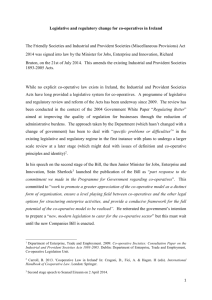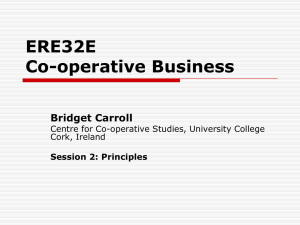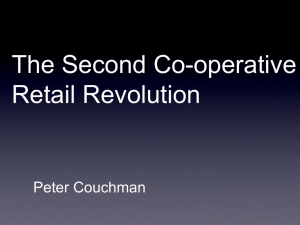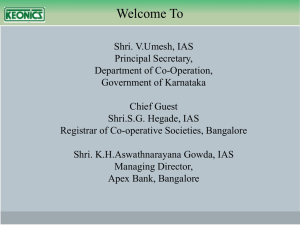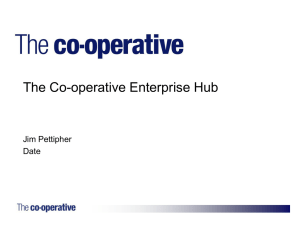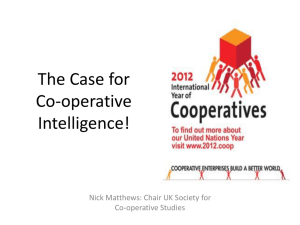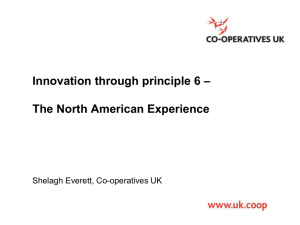Managerial Economics of Co-operative Societies
advertisement
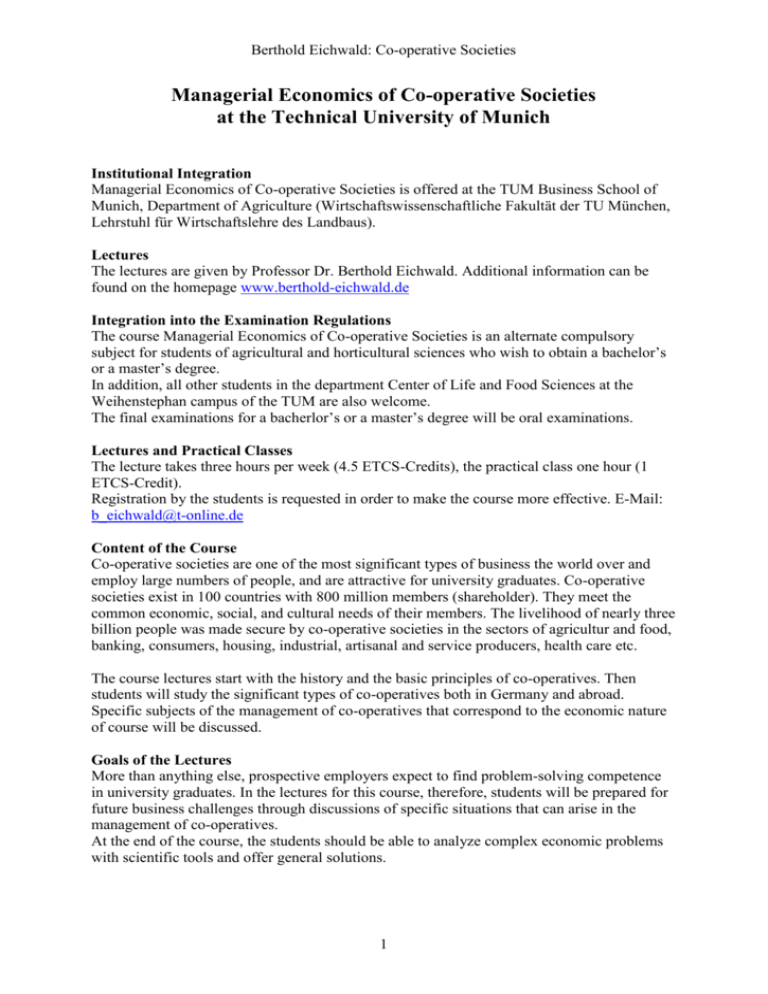
Berthold Eichwald: Co-operative Societies Managerial Economics of Co-operative Societies at the Technical University of Munich Institutional Integration Managerial Economics of Co-operative Societies is offered at the TUM Business School of Munich, Department of Agriculture (Wirtschaftswissenschaftliche Fakultät der TU München, Lehrstuhl für Wirtschaftslehre des Landbaus). Lectures The lectures are given by Professor Dr. Berthold Eichwald. Additional information can be found on the homepage www.berthold-eichwald.de Integration into the Examination Regulations The course Managerial Economics of Co-operative Societies is an alternate compulsory subject for students of agricultural and horticultural sciences who wish to obtain a bachelor’s or a master’s degree. In addition, all other students in the department Center of Life and Food Sciences at the Weihenstephan campus of the TUM are also welcome. The final examinations for a bacherlor’s or a master’s degree will be oral examinations. Lectures and Practical Classes The lecture takes three hours per week (4.5 ETCS-Credits), the practical class one hour (1 ETCS-Credit). Registration by the students is requested in order to make the course more effective. E-Mail: b_eichwald@t-online.de Content of the Course Co-operative societies are one of the most significant types of business the world over and employ large numbers of people, and are attractive for university graduates. Co-operative societies exist in 100 countries with 800 million members (shareholder). They meet the common economic, social, and cultural needs of their members. The livelihood of nearly three billion people was made secure by co-operative societies in the sectors of agricultur and food, banking, consumers, housing, industrial, artisanal and service producers, health care etc. The course lectures start with the history and the basic principles of co-operatives. Then students will study the significant types of co-operatives both in Germany and abroad. Specific subjects of the management of co-operatives that correspond to the economic nature of course will be discussed. Goals of the Lectures More than anything else, prospective employers expect to find problem-solving competence in university graduates. In the lectures for this course, therefore, students will be prepared for future business challenges through discussions of specific situations that can arise in the management of co-operatives. At the end of the course, the students should be able to analyze complex economic problems with scientific tools and offer general solutions. 1 Berthold Eichwald: Co-operative Societies Method of the Lectures Since knowledge quickly becomes obsolete, the acquisition of certain abilities and techniques is crucial to solving economic problems. In this regard, it is most important to be able to understand and use methods of scientific business management. The knowledge acquired in this way will be repeatedly tested during the course through the study of specific examples. Knowledge and abilities are useless if they cannot be communicated in a specific situation. For this reason, special emphasis is give to continuous discussion during the lessons. Study Trips and Workshops In addition to the lectures and the practical classes, there are study trips to co-operative companies and workshops in the problems of co-operatives. The study trips offer insight into the problems that can be encountered in the actual operation of a co-operative. At the same time, these trips provide students with the possibility of discussing future employment opportunities. Training in communication skills is a particularly important goal of the one-day workshops. The simulation of the management decision-making process in co-operative businesses can provide a foundation for the students’ future career choices that is both realistic and exciting. International Orientation The lectures take into account the fact that co-operatives exist in a variety of international contexts. Therefore the course is suitable for foreign students who may want to consider various possibilities for work in their home countries. Literature The manuscript for the lectures will be put at the student’s disposal. References to further reading in the classes. Further Questions For further information please contact Professor Eichwald by e-mail at the following address: eichwald@wzw.tum.de Links www.berthold-eichwald.de www.wzw.tum.de/~eichwald/ b_eichwald@t-online.de eichwald@wzw.tum.de 2
